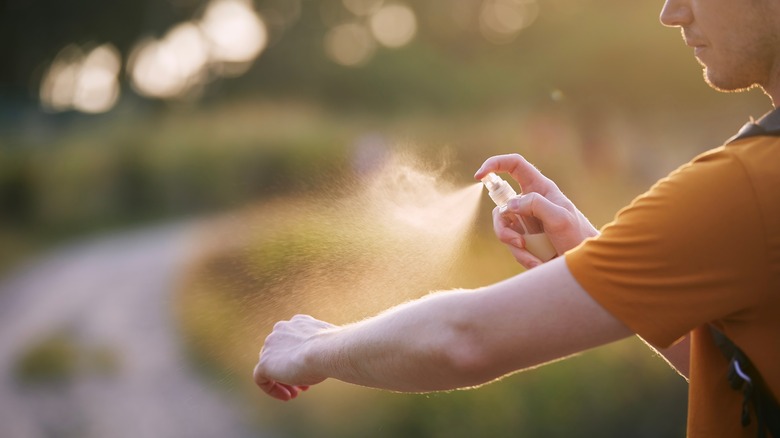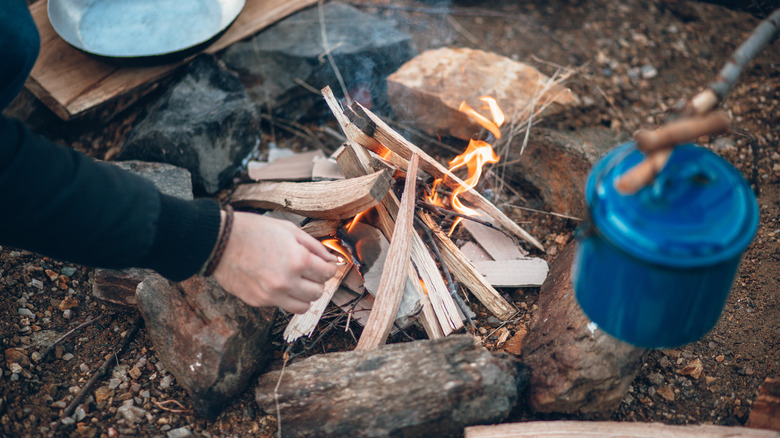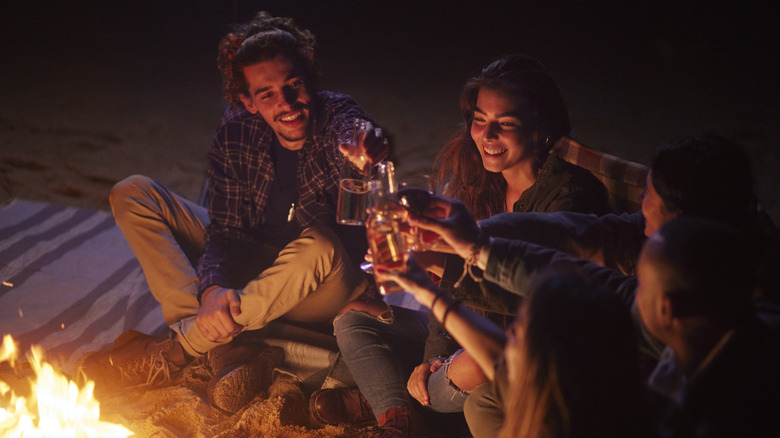Travel Guides Outdoor Adventures Camping
Lexi Kassler
Drinking a cold one — whether that be a wheat beer, wine seltzer, or whiskey on the rocks — just hits different when out in the wilderness. Whether you’re relaxing on your own in your tent, gazing at a beautiful sunset, or exchanging stories by the campfire with your friends or family, (responsibly) sipping on a drink can really complete the moment.
But alcohol isn’t only for drinking when you’re out camping. Unexpectedly, it can come in handy for a variety of different things, even as an insect repellent! In particular, whiskey can be used to keep away the itchy, creepy-crawly biters known to wreak havoc on a cookout with a bunch of tasty food (and people).
While we wouldn’t necessarily recommend you bring a flask of whiskey as your main type of insect repellent, it can definitely do the job in a pinch. Especially if you find yourself inundated with mosquitoes and midges and you’ve forgotten bug spray at home. The only downside? You’ll have less whiskey to drink…
How to use whiskey as an insect repellent

Jaromir Chalabala/Shutterstock
There’s a fine line to using whiskey as a topical insect repellent that goes from, “Hmm, that smells nice,” to “I smell like a college town bar on Thirsty Thursday.” You also need to consider your skin’s particular sensitivity, as it can sometimes be irritating if too much whiskey is applied. For some people, though, anything is better than getting bit by bloodthirsty insects. To each their own!
Use a small amount of whiskey to start. Try a teaspoon mixed with a cup of water in a spray bottle, and dilute it further if it smells too strong. You don’t need much to keep the bugs away. Their sense of smell is much better than ours, and it only takes a little to throw them off. If you don’t have a spray bottle, poke two to three tiny holes in the top of a water bottle, and apply the concoction that way. This might spill everywhere, but it gets the job done.
Additionally, while you probably won’t have a shelf of whiskeys to choose from, aim for one with no added sugars, as this can have the opposite effect and actually attract bugs. For example, while you might have Fireball lying around for late night shots, it has 11 grams of added sugar per serving. On the other hand, most of the popular whiskeys, like Jack Daniel’s or Maker’s Mark, have no added sugars.
Other handy uses for whiskey when camping

Hobo_018/Getty Images
While you probably expected to use your whiskey for drinking, it can come in handy if you forgot a few essentials for your trip. (An important tip: Don’t drink while packing!). If you remembered your whiskey at least, you might just be in luck. Again, we want to emphasize that whiskey should definitely not be the first choice for any of the following tasks, but it is a good standby if you have nothing else at your disposal.
If your campground is wet and you can’t find any dry wood to start a fire, then you can use a little bit of whiskey as an accelerant to light kindling and keep the flames going. Just be careful not to singe off your eyebrows.
Forgot your first-aid kit at home and got a cold? A hot toddy (whiskey, honey, and lemon) can be a great way to soothe your throat, promote decongestion, and lull you to sleep. Normally, alcohol is the last thing you want to consume when sick, but in some cases, it can help if you have few other options. If you got a nasty cut or a scrape, you can pour a little whiskey on the wound to disinfect it. This isn’t recommended as it can also harm healthy tissue and slow healing, but it will keep it from getting infected so long as you have a clean bandage to cover it.

